What Are the Top 5 Soft Skills? Why, and How to Develop Them?
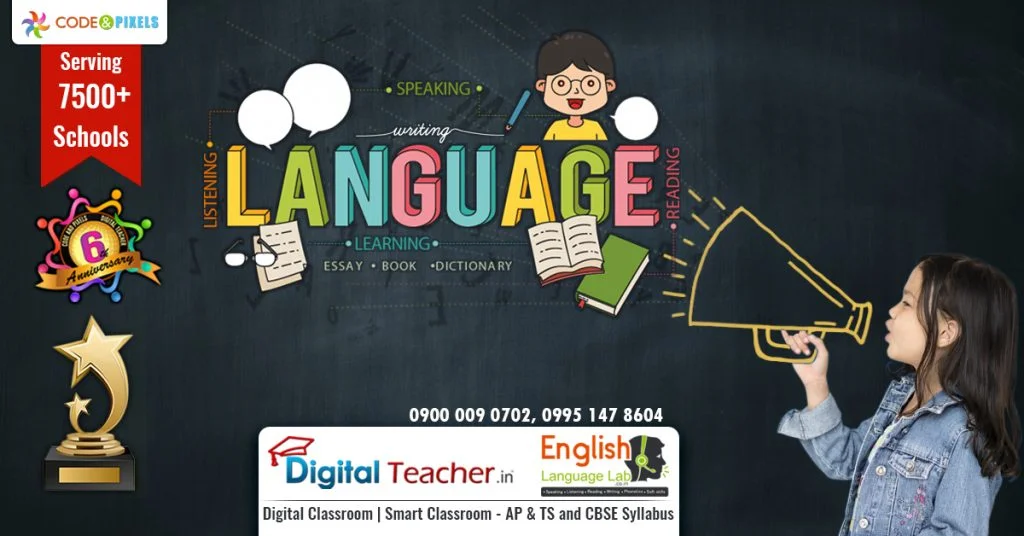
What Are Soft Skills? (Definition)
- The definition of “soft skills” describes advantages such as attitude, habits, and social behaviour that help determine a person’s effectiveness as an employee and team member. Manners, politeness, and interpersonal skills are essential for bringing people together in today’s competitive environment.
- Hard skills/technical skills are required in the present day for success and the safety of employment. Soft skills, on the other hand, have grown in importance in recent years as a means of separating oneself from the crowd. A person who receives soft skill training and has positive conduct and his personality will stand out from the crowd since they are great and have strong interpersonal skills.
- There are various falsehoods about soft skills, like the concept thinking women are more effective at soft skills, which is false. Soft skills are simple to gain and impartial, so both men and women may learn and practice them. People seek and value specific their way in each other, such as honesty, interpersonal skills, honesty and hard work, determination and politeness, behavior, morals, satisfaction in one’s job, and effective listening skills.
- Soft skills are extremely valuable to both individuals and companies. Businesses with soft-skill employees are more productive, have higher customer satisfaction rates, and have been viewed as more credible by the public. They also increase employee interest, gain an edge over competitors, and build strong teams and leadership teams. Soft skills also provide workers with challenges, awards, and benefits, increasing their motivation and success.
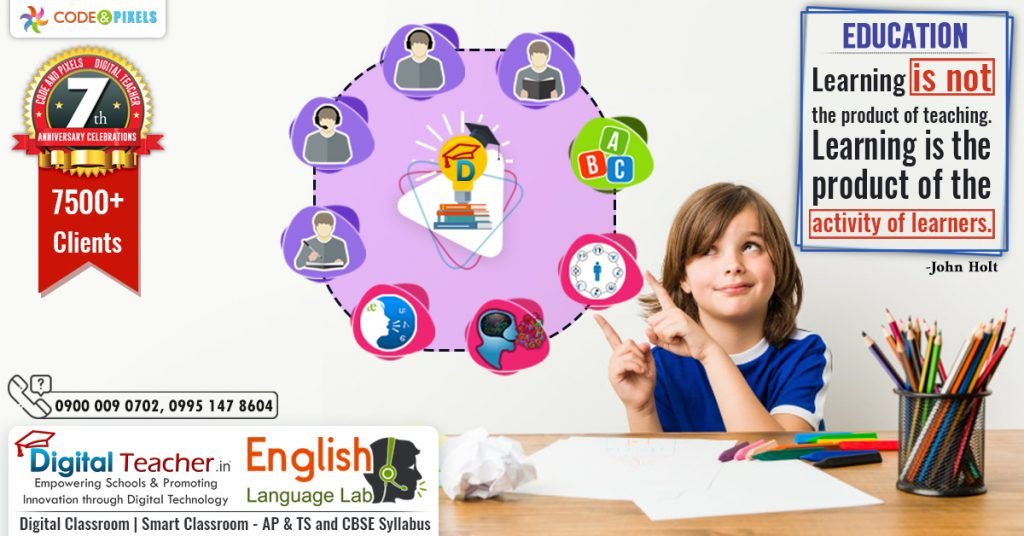
Soft Skills Are Important for
In simple terms, People who understand and use soft skills in their lives can become great business persons, journalists, and public-sector leaders. Applying and learning soft skills in your daily life can result in many kinds of benefits, including greater job satisfaction, respect, and awareness.
- Soft skills are extremely valuable to both individuals and companies.
- Businesses with soft-skill employees are more productive, have higher customer satisfaction rates, and have been viewed as more credible by the public.
- They also increase employee interest, gain an edge over competitors, and build strong teams and leadership teams.
- Soft skills also provide workers with challenges, awards, and benefits, increasing their motivation and success.
- Soft-skills may benefit anyone by getting noted by other people, employers, industry, and employers.
- They may also be provided tough future possibilities, opportunities for progress and promotion, improved job performance, and increased responsibility.
- Responsibility and ownership are important soft skills to have on the job since they develop success and career growth.
All of these Best five skills play an important role in Professional growth and effectiveness on the job, whatever his or her industry or work:
- Self-skills
- Presentation skills
- Communication skills
- Group Discussion skills
- Interview Skills
Continue learning below, where we covered the top five skills in more detail:

First Skill – Self-skills
Self-skills are mandatory for well-being as well as personal growth. Self-awareness, self-reflection, self-confidence, self-discipline, goal planning, time management, resilience, mindfulness, emotional regulation, positive thinking, adaptability, self-motivation, gratitude, assertiveness, and self-care are all important skill sets. These talents help people manage their emotions, make realistic objectives, and understand their feelings strengths, limitations, and values. A strong foundation for one’s happiness and achievement is created by continuous effort and attention to learning. Developing these talents is an ongoing process that may be adjusted to fit specific requirements.
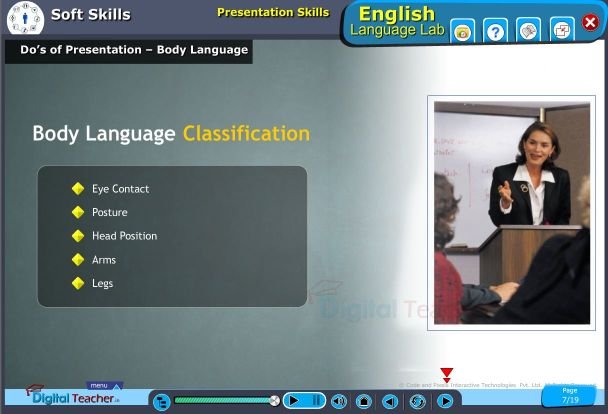
Second Skill – Presentation skills
A presentation is a means of presenting a topic to an audience using a visual tool, commonly a PowerPoint file, that includes all the slides for the content or speech. It involves gathering and delivering information. For effective presentation skills, follow the tips below.
- Developing a Highlighting Strategy: It requires understanding the audience’s expectations and language preferences. You must adapt the presentation to the audience’s needs, make it real, practical, and relevant, and keep it brief and to the point. Clarifying the objectives and properly studying the topic is necessary for a good presentation. The first stage in delivering an effective presentation is to be clear about the goal and study.
- Creating an Adjustable Framework: After deciding the goal, arrange the resources, conduct research on the topic, and edit and polish the slide presentation. It is necessary for developing the audience’s comprehension and maintaining their attention. Justify ideas using relevant factors and consider the audience’s perspective. Convincing the audience is difficult because of their different points of view.
- Presentation Technique: A great presentation needs both presenting skills and personal confidence. It should exude energy, excitement, and appropriate body language. Avoid showing nervousness, leaning in a certain direction, or exhibiting closed body language. Use modulation in voice and tone, using both high and low tones. Humour is vital for establishing connections and engaging with your audience. Avoid unpleasant gestures and connect with your audience directly.
- Handling Comments and Problems: To make a successful presentation, consider audience questions and prepare solutions ahead of time. Collect supplementary facts to support your major ideas. Use thought-provoking questions to keep the audience interested while avoiding deviating from the topic. Make your major ideas clear and ask open-ended questions. Be truthful and apologize if you don’t know the answer. Control individuals by making them the focus of attention and preventing them from asking too many questions.
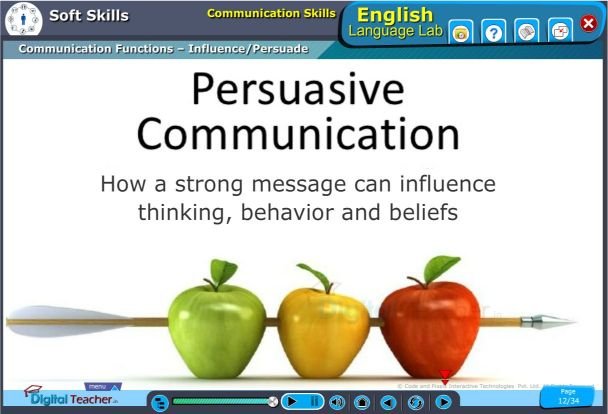
Third Skill – Communication skills
The use of words involves presenting yourself simply and effectively. It involves creating logical proof, taking notes as well, rewriting, analyzing, and creating reports. Though order and style may be understood quickly, creating outstanding material requires additional time.
- Written communication skills, such as emails and proposals, are noticed for their organization, clarity, and conciseness. It is critical to rewrite and deliver the initial draft before sending it.
- Telephone/Call Skills include changing voice and timing needs to produce beneficial experiences, filling pauses with information, and making little changes to avoid giving a bad impression.
- Non-verbal communication skills, which may be developed through self-awareness and practice, have a major impact on our relationships and leave a lasting impression on others.
- Collaboration and teamwork are essential for success in today’s challenging work environment because they require strong task skills, interpersonal dynamics, and a positive attitude.
- Administrators must give positive feedback to employees, including coaching, and actively listen to it to help them grow. Being receptive to feedback is an important communication skill.
- Understanding is essential in communication because it allows us to comprehend other people’s emotions and create trust. It promotes positive outcomes by putting other people’s interests first.
- Good listening skills are a confidential communication ability that allows people to avoid distractions, absorb information, learn fresh skills, and establish real connections, making them vital for successful leadership.
- Interpersonal skills, such as one-on-one interaction with friends and colleagues, are of the utmost importance in the face of regular job demands and stress since they promote mutual understanding and enjoyable connections.
- Public speaking and delivering abilities are essential communication skills for standing out from others and garnering attention as a leader of others.
- Effective communication needs convincing abilities, which include articulating a need or problem to listeners and asking for their help in a variety of locations such as speeches, group meetings, emails, and written proposals.
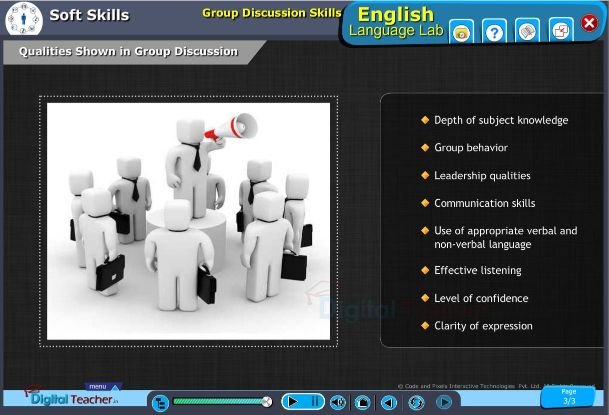
Fourth Skill – Group Discussion Skills
In group communication, it is important to agree with others, disagree, suggest, request clarification, delay, and make broad statements. It is also essential to be courteous and understand the appropriate language for every discussion topic. It helps to comprehend and respond to other people’s ideas and comments. In a group discussion, you should offer your point of view in a variety of methods, such as voicing your opinion, expressing your position, or presenting a different perspective.
Group Conversation: Tips and Some examples
- This means that you may say phrases like “I totally agree with you” when you need to agree with someone else.
- Although disagreeing with someone, use terms like “with due respect” to appear courteous. When speaking for oneself, terms like “in my perspective” might be used.
- When offering your ideas, use terms like “my honest opinion” to convey professionalism and confidence.
- While asking for clarification, make sure you grasp the other person’s point of view before agreeing or disagreeing.
- These sentences demonstrate that you truly believe in your position and exhibit professionalism in group discussions.
Fifth Skill – Interview Skills
An interviewer’s skill to interact with the company or interviewer and explain why you are the greatest match for the job position. Additionally, here are some examples of interview techniques to keep in mind before attending an interview!
- First impressions are very important in an interview because they confirm that the interviewer is the best candidate for the job. To create an unforgettable mark, make it a nice one.
- Before an interview, conduct detailed studies about the company to prepare for questions and develop a solid awareness of its organizational framework, leadership, and the degree of turnover.
- During an interview, thoroughly study the job description to find important keywords that match what you do. Take notes on those characteristics and prepare by writing out examples of how you have displayed them in various situations, such as college or previous jobs.
- Invest in a suitable portfolio or briefcase to keep your CV, more copies, and authorization set up for an interview, which will ensure a good and pleasant impression.
- Arriving early to an interview helps for both quality and comfort. Plan your route so that you arrive at least 15-20 minutes early, giving you plenty of opportunity to find yourself.
- Wear a formal shirt, pants, clean socks, and shoes to an interview to increase your chances of success. Shoes should coordinate with belts and trousers. Wear clean, tidy shoes, straighten your clothes, and keep an additional shirt on hand for simple replacement if one becomes muddy.
- Practice is necessary for a successful interview; communicate with family or friends to grow familiar with the hiring process flow and ensure complete preparation.
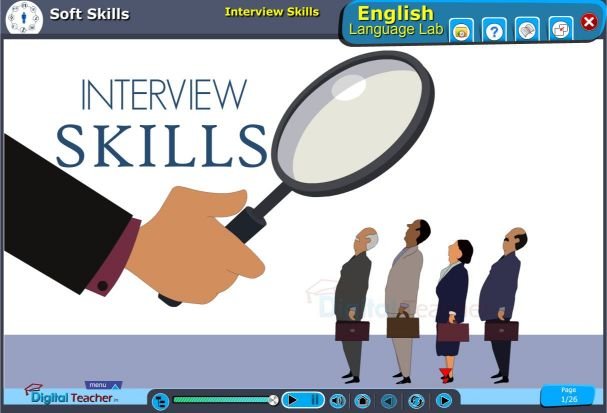
Dos and Don’ts of Interview:
Learn the golden rules of interview dos and don’ts with detailed clarifications from a Digital Teacher English Language Lab Software.
- Draw attention to what is needed to stay pleasant.
- Saying away from talking too much.
- While maintaining a correct tone with interruptions. (This highlights the need to do breathing activities along with managing your speech to keep up to avoid making mistakes.)
- Avoid asking unrelated questions and giving personal information during an interview.
- Concentrate on research and listening skills, and avoid discussing family, relatives, or previous experiences.
- Maintain quality while avoiding personal problems.
- Asking the hiring manager for clarification on questions is permissible.
- And double-checking questions before responding can improve the interview experience and reflect professionalism.
- To avoid negative impressions and create a positive interview experience, carry necessary materials such as: resume copies, note-taking scripts, water bottles, referrals and contact details with you.


